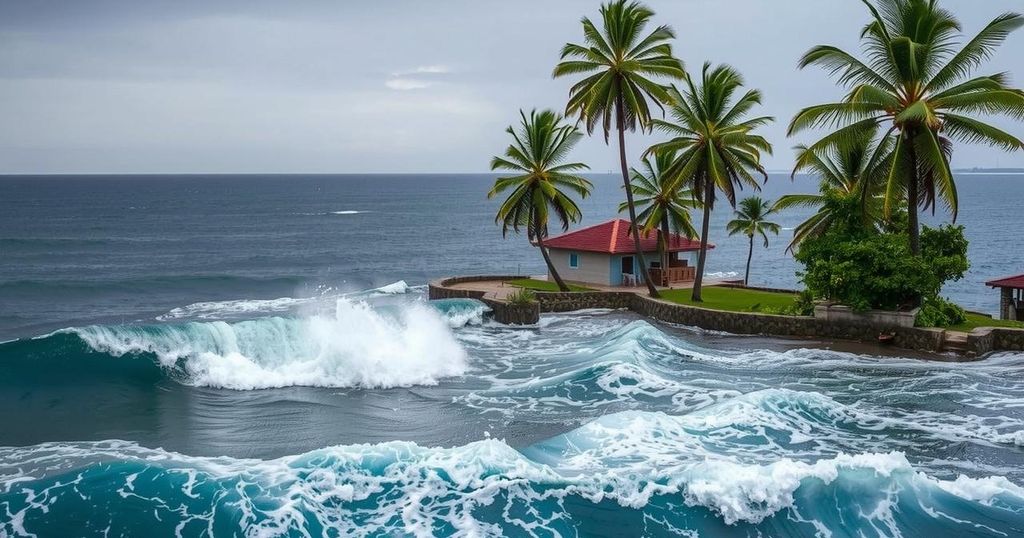Cyclone Chido Claims 75 Lives in Mozambique, Intensifying Humanitarian Crisis

Cyclone Chido has claimed 75 lives in Mozambique, nearly doubling prior estimates. The storm struck Cabo Delgado, an area already affected by insurgency, hampering rescue efforts. The cyclone caused extensive damage to infrastructure, displacing thousands. The event raises concerns over the compounded effects of climate change on impoverished communities, as the U.N. warns of an intense rainy season ahead.
The toll from Cyclone Chido’s impact in Mozambique has tragically increased to 75 fatalities, as reported by government officials on Friday. This latest figure nearly doubles the earlier count, underscoring the extensive destruction that rescue teams have been uncovering. The cyclone struck the northeastern province of Cabo Delgado, an area already destabilized by prolonged insurgency, displacing hundreds of thousands previously. Rescue efforts were hampered as workers ventured into regions cut off by the cyclone, revealing alarming reports of destruction. Isadora Zoni, a United Nations refugee agency officer, noted: “What you see is utter destruction. Everything’s been flattened.” The storm resulted in at least 69 casualties in Cabo Delgado and left 740 others injured. The region faced devastating infrastructure damage, with reports indicating that mud houses were eroded and wooden structures were obliterated.
Furthermore, the maternity clinic in the district of Mecufi sustained significant damage, with its roof torn off, and essential equipment and furniture were overturned. The cyclone affected approximately 10,000 individuals in the Chiure district, where people now reside in temporary shelters after fleeing from insurgent violence. The United Nations has expressed concerns about the compounded effects of climate change, stating, “their situation is compounded by climate shocks.”
Cyclone Chido, which reached wind speeds of 115 miles per hour equivalent to a Category 3 hurricane, has also inflicted severe damage in Mayotte, a French territory, resulting in a reported 31 deaths. History indicates that this season may foreshadow further severe weather events, with past cyclones, such as Tropical Cyclone Freddy and Cyclone Gombe, having previously claimed numerous lives in Mozambique. Approximately 140,000 individuals have sought refuge due to climate-related adversities in recent years.
This catastrophic event is a poignant reminder of the vulnerabilities faced by a nation already grappling with extreme poverty and the relentless impact of climate change.
Cyclone Chido hit Mozambique during a period marked by ongoing conflicts and insecurity, particularly in Cabo Delgado province, which has been plagued by an insurgency linked to extremist groups. This debilitating situation has led to mass displacements, exacerbating the challenges faced by the local population. Mozambique, often severely impacted by climatic disasters, is recognized as one of the poorest nations globally, with storms and flooding occurring regularly during the rainy season. Cyclone Chido’s recent arrival heightened concerns regarding the region’s future, as similar past events have caused substantial loss of life and property.
The devastating effects of Cyclone Chido in Mozambique have highlighted the intersection of climatic and humanitarian crises, amplifying the struggles faced by a region already in turmoil. With rising fatalities and significant infrastructural damage reported, the necessity for humanitarian aid and resilient recovery efforts is paramount. Historical patterns of intense cyclones further underscore the urgent need for preparation and protective measures as adverse climate phenomena continue to threaten vulnerable communities in Mozambique.
Original Source: www.nytimes.com








